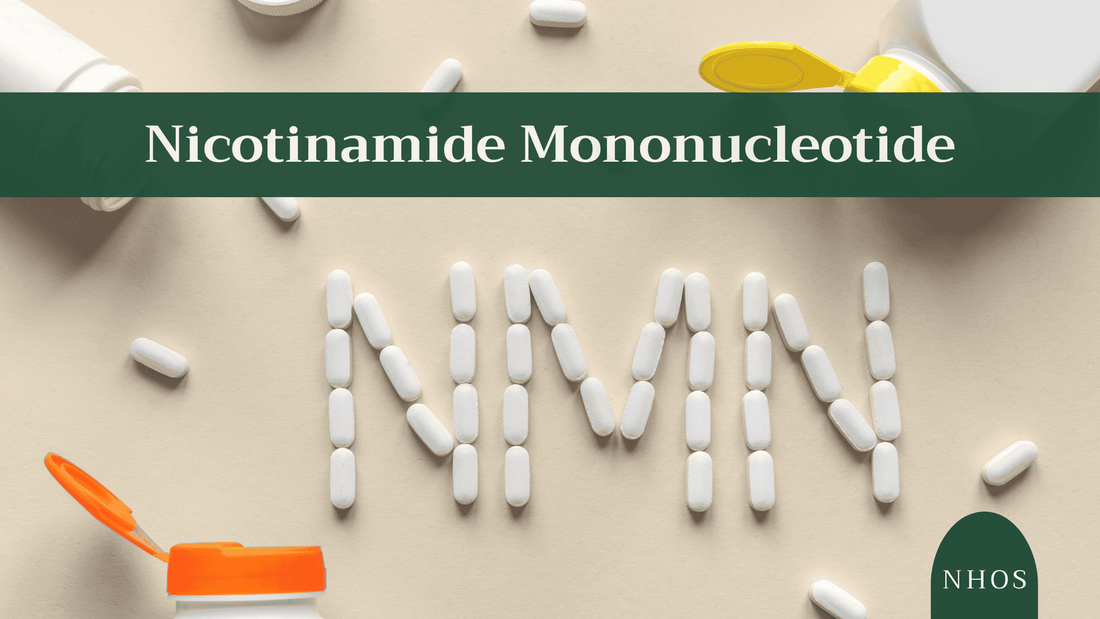
Nicotinamide Mononucleotide
At specific doses, NMN supplements may enhance insulin sensitivity, heart function, and reduce fatigue with minimal side effects, but consulting your doctor before trying it is advisable.
If you’re interested in aging and longevity innovations, you may have heard of NMN, which stands for nicotinamide mononucleotide.
It’s a molecule your body makes naturally, but some people also take it as a supplement.
What is nicotinamide mononucleotide (NMN)?
Put simply, NMN is a naturally occurring molecule that helps power your body.
NMN is a type of molecule called a nucleotide. Nucleotides play many roles in your body, including as the building blocks of DNA.
Within your cells, NMN is converted into another molecule known as nicotinamide adenine dinucleotide (NAD). Your body needs NAD for a variety of functions involved in metabolism and energy production.
The amount of NAD your body can make depends on the amount of NMN available in your body.
Benefits of NMN
All the cells in your body use NAD and therefore require NMN, its precursor, to function properly. NAD helps cells regulate a number of essential functions that help keep your cells running smoothly, including:
- energy metabolism
- DNA repair
- gene expression
- cellular stress responses
It’s essential that your cells have plenty of NMN to produce enough NAD to support these functions.
Declining NMN levels with age may lead to reduced NAD levels, impacting various bodily functions, including energy metabolism and cellular stress responses. Research indicates lower NMN and NAD levels in age-related conditions such as diabetes and liver diseases.
NMN vs. NR
If you’ve heard of NMN, you might have also heard of nicotinamide riboside (NR). NR is another molecule similar to NMN that people also take as a supplement for healthy aging.
Evidence Trusted Source suggests that the body converts NR into NMN, which then is converted into NAD.
Potential benefits of NAD
Since taking NMN may help your body produce more NAD, it’s also important to consider the research behind the benefits of NAD. Studies investigating NAD shed light on its potential benefits:
It may increase longevity. In your cells, NAD activates a group of proteins called sirtuins, which help repair your DNA. The activity of sirtuins is linked to longevity. On the flip side, low-NAD levels are associated with age-related diseases.
Benefits of taking an NMN supplement
Given the benefits of NMN on human health, some experts believe that taking an NMN supplement can help reverse the effects of aging. Some even claim that NMN is a proverbial “fountain of youth Trusted Source,” at least as shown in animal models.
Here we take a closer look at the human research on NMN supplementation, including potential benefits, safety risks, and available data on the most effective dosage.
A study investigated NMN effects on amateur runners during exercise training. Participants aged 27 to 50 took NMN supplements (300, 600, or 1200 mg/day) or a placebo for 6 weeks. Those receiving NMN showed increased aerobic capacity, particularly at higher doses, possibly due to improved oxygen intake.
Another study focused on sleep quality in older Japanese adults. Participants took 250 mg of NMN or a placebo for 12 weeks. While NMN didn't enhance sleep quality, it reduced drowsiness and improved muscle responsiveness, particularly when taken in the afternoon.
NMN supplementation may aid in addressing age-related health concerns by increasing NMN levels and potentially enhancing insulin sensitivity, although further human studies are required to confirm these benefits.
Additionally, NMN supplementation has shown promise in reducing drowsiness and improving muscle responsiveness in older adults, which could contribute to better physical and mental health as individuals age.
Is NMN safe, and does it have side effects?
NMN is a safe supplement to raise NAD levels, supported by both human and animal studies showing minimal side effects. Human research suggests doses up to 1,200 mg daily are safe.
Determining the optimal NMN dosage is challenging due to limited data. Studies indicate health benefits with doses ranging from 250 mg to 1,200 mg daily, with no significant safety differences among doses.
In a study with amateur runners, higher NMN doses (1,200 mg) showed greater aerobic benefits compared to lower doses (300 mg), but no difference was observed between high (1,200 mg) and medium (600 mg) doses.
While NMN supplementation may offer health benefits like improved insulin sensitivity and aerobic function, evidence in humans is still limited. Consult a healthcare professional before starting any supplement regimen to assess potential risks and benefits.
